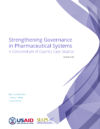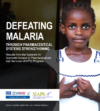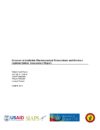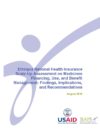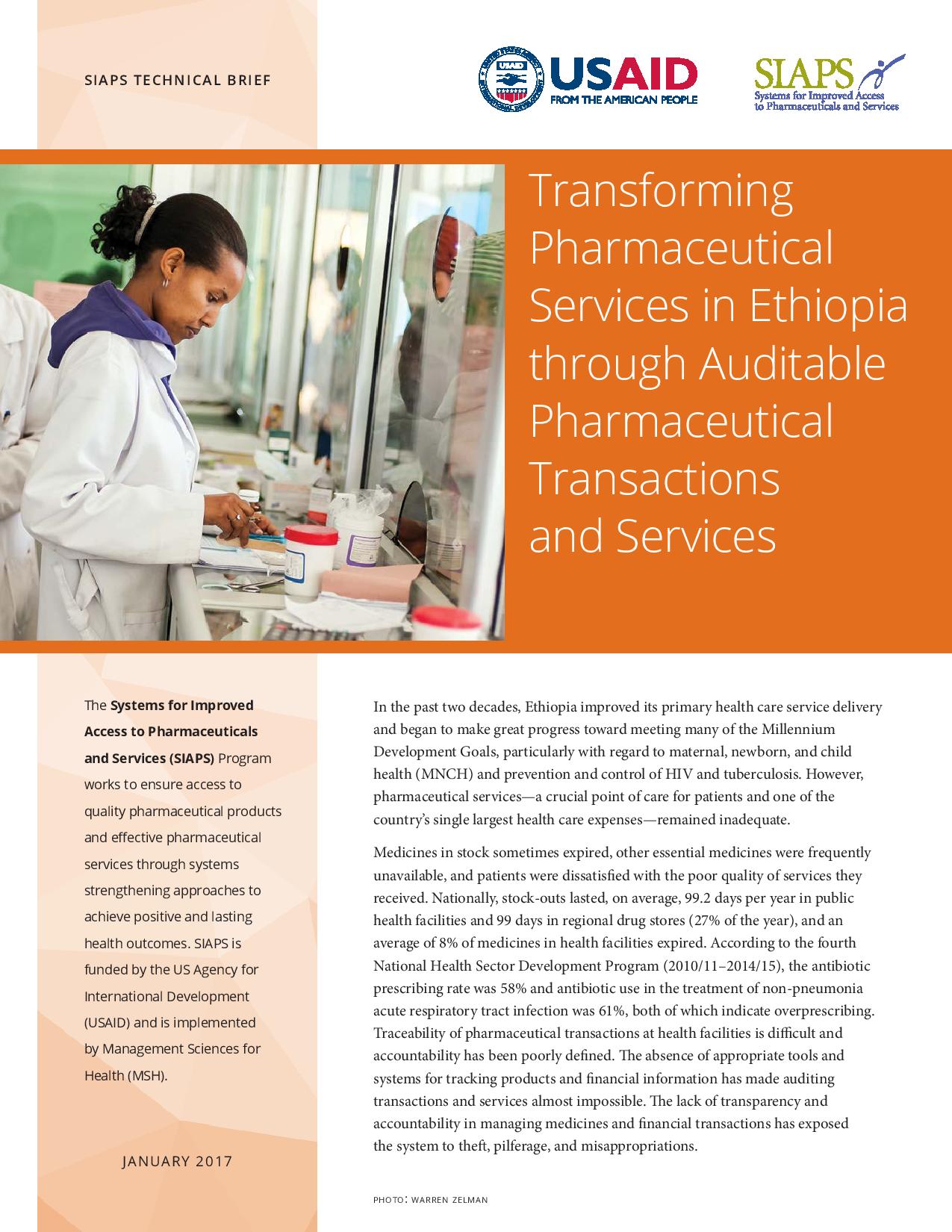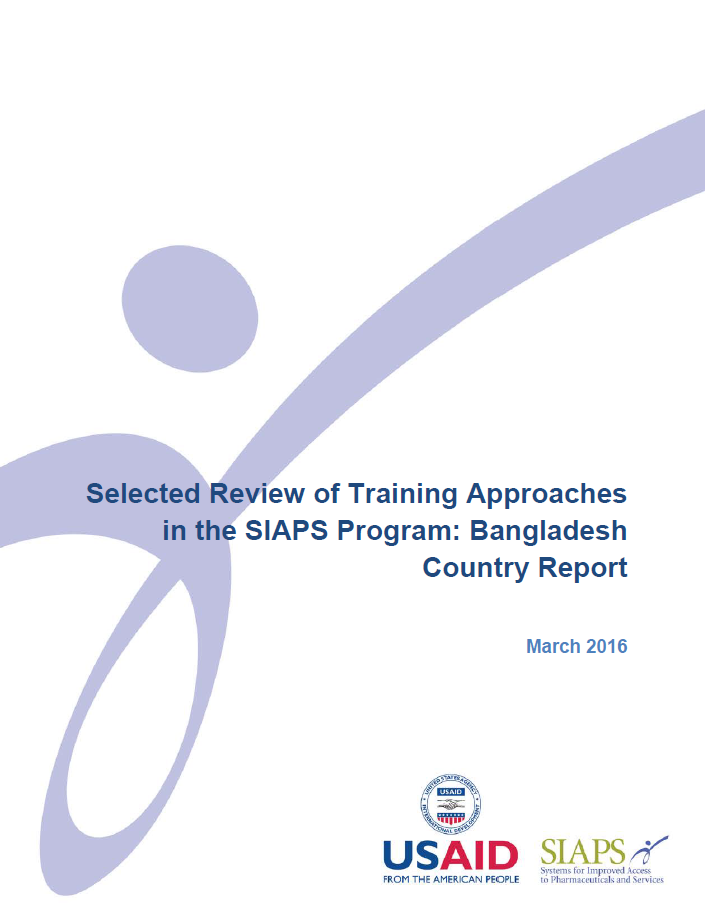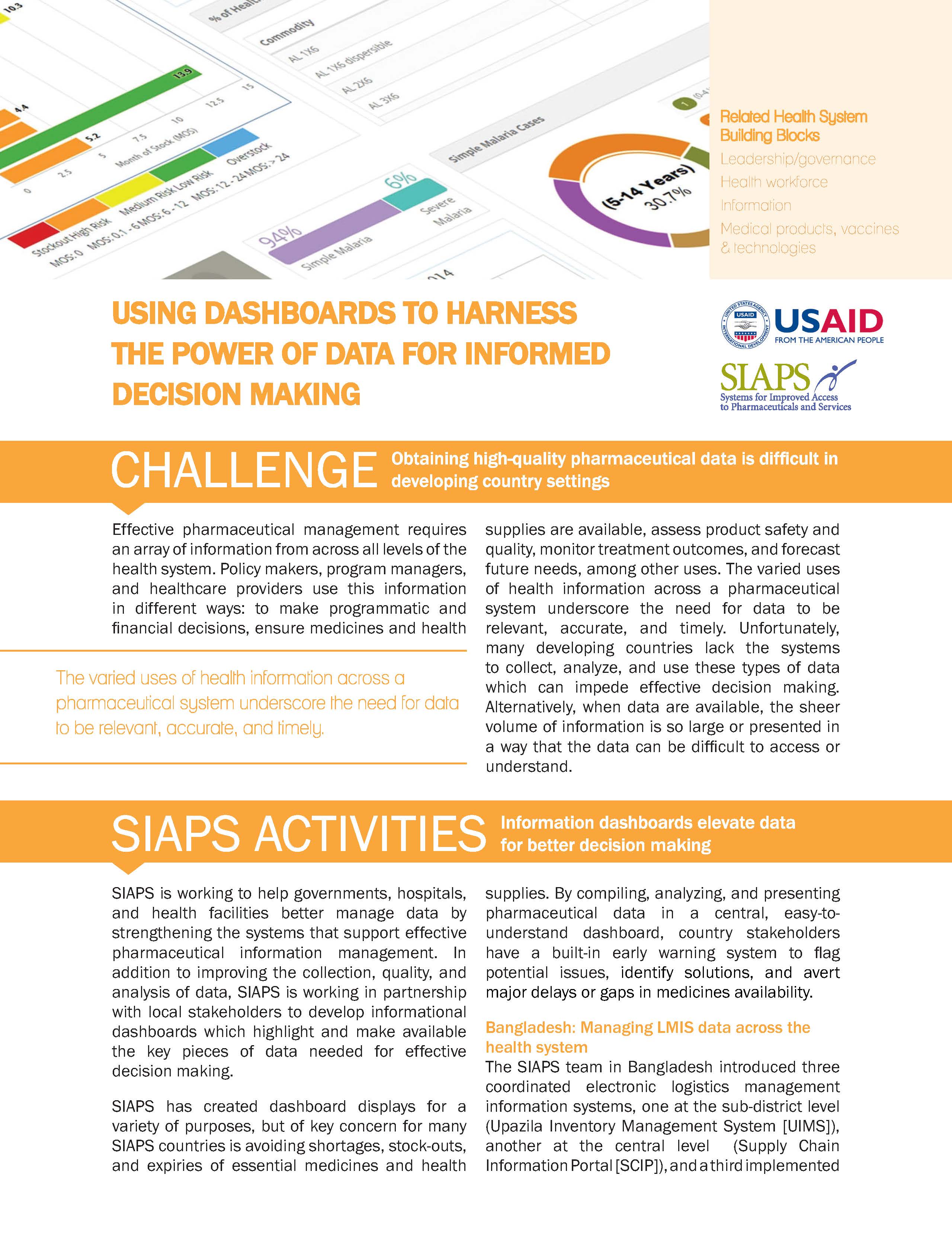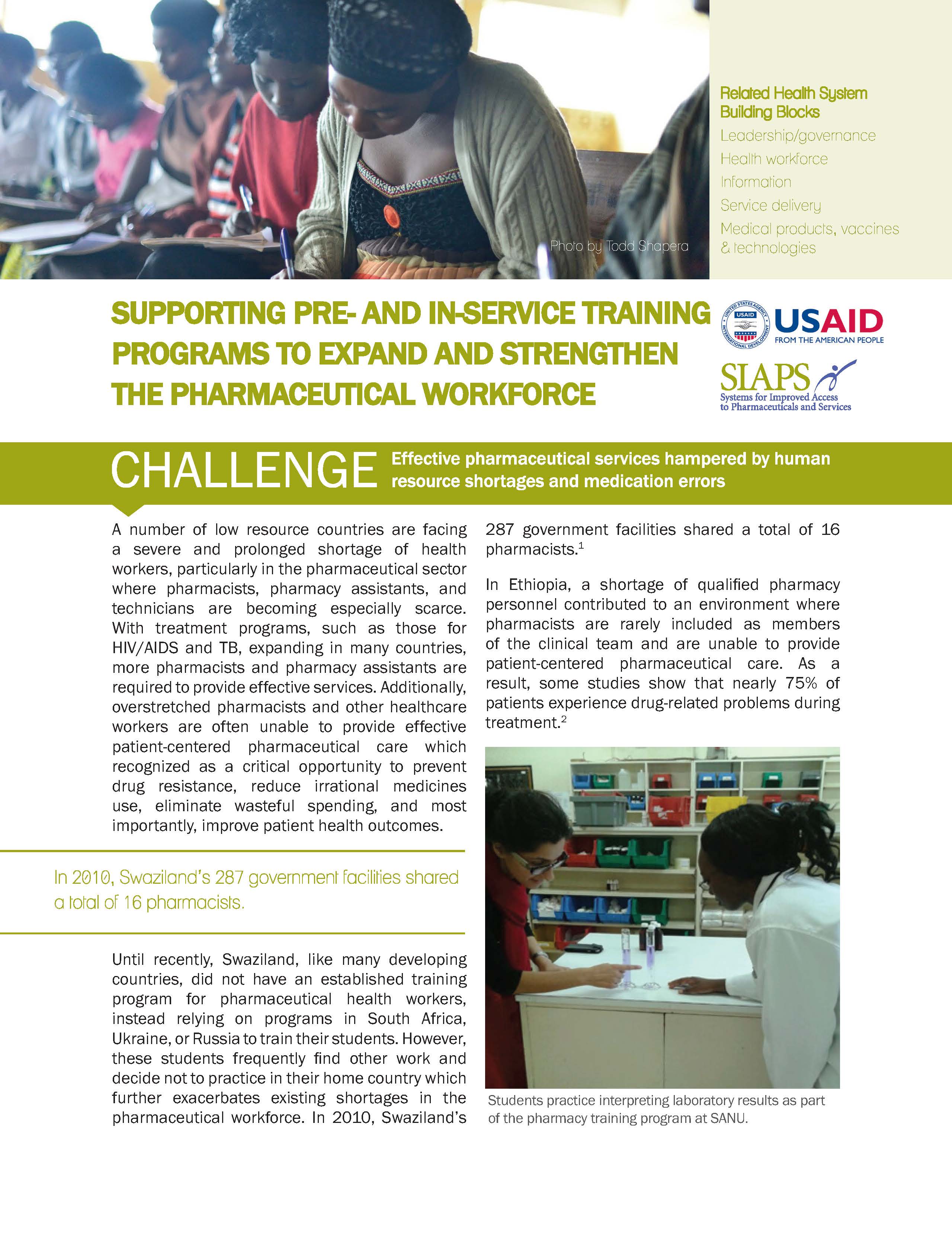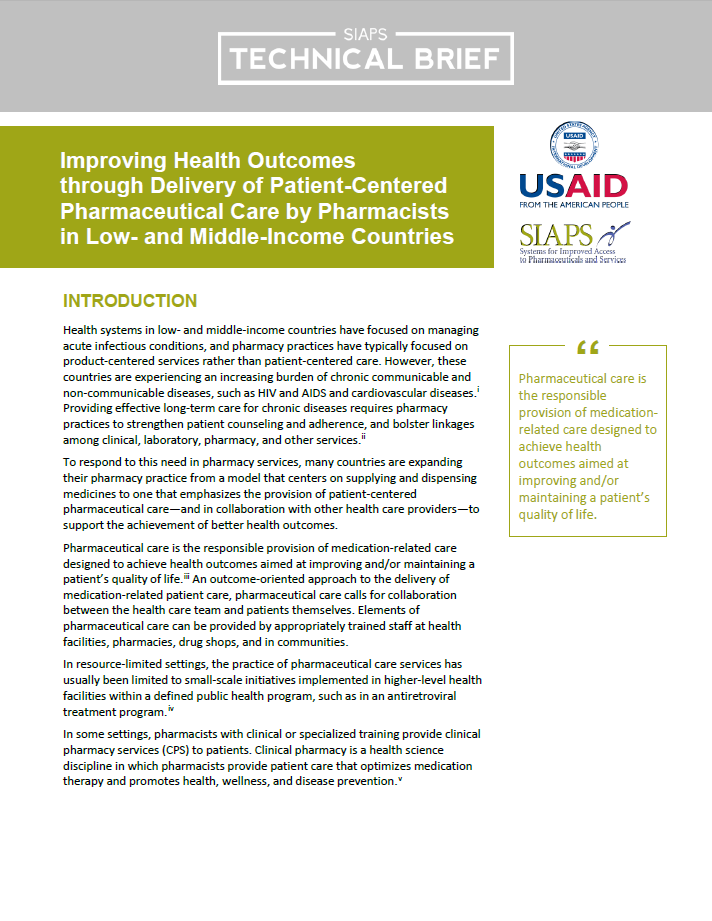SIAPS and its predecessor programs have assisted numerous countries in strengthening governance to promote robust decision making, enhance accountability, reduce opportunities for corruption, and improve efficiencies to enable better access to and use of quality-assured medicines. This compendium draws on these experiences and provides a collection of examples of strategies and approaches for strengthening governance … Read more
Bangladesh, Cameroon, Democratic Republic of Congo, Ethiopia, governance, H Walkowiak, Philippines, S Putter, Sierra Leone, Swaziland, T Hafner, Ukraine
SIAPS has received funding from the US President’s Malaria Initiative (PMI) to work in eight countries—Angola, Burundi, Democratic Republic of the Congo (DRC), Ethiopia, Kenya, Guinea, Mali, and South Sudan—to strengthen pharmaceutical systems for improved malaria control. This report synthesizes the pharmaceutical systems strengthening efforts of SIAPS and documents how the approach was used to support … Read more
A Clark, A Mwansasu, Angola, Burundi, Democratic Republic of Congo, Ethiopia, Guinea, Kenya, Malaria., Mali, PMI, S Doumbia, South Sudan, Technical Report
Project dates: September 2011- March 2017
This report presents results of the assessment on implementation of Auditable Pharmaceutical Transaction and Services (APTS), a package of interventions designed to improve the quality of pharmaceutical services at public health facilities. The development and implementation of this intervention has been supported by the SIAPS program, which is implemented by Management Sciences for Health (MSH) … Read more
accountability, APTS, Assessment, B Gulilat, D Teshome, Ethiopia, F Sebsibe, pharmaceutical services, T Assefa, Technical Report, TG Fenta, transparency
An assessment on current pharmaceutical financing, SHI and CBHI medicines coverage, and public and private sector medicines prescribing and dispensing and their costs was conducted. The SCMS program conducted an assessment that addressed the supply chain and public-private partnership implications of the expected increased demand for quality medicines and related health supplies. This report presents … Read more
MSH has implemented pharmaceutical management projects in Ethiopia since 2005, through the Rational Pharmaceutical Management Plus Project and the Strengthening Pharmaceutical Systems (SPS) Program and most recently the Systems for Improved Access to Pharmaceuticals and Services (SIAPS) Program. The SIAPS Program (2011 to 2016) aims to reduce morbidity and mortality, primarily for HIV and AIDS, … Read more
Between 2011 and 2015, the SIAPS Program has trained more than 38,000 people in 20 countries. To understand the training approaches used and the results of the training, the SIAPS Program performed a multi-country review of individual capacity-building approaches. The objective of this review is to summarize the types of training that have been used … Read more
SIAPS is working to help governments, hospitals, and health facilities better manage data by strengthening the systems that support effective pharmaceutical information management. In addition to improving the collection, quality, and analysis of data, SIAPS is working in partnership with local stakeholders to develop informational dashboards which highlight and make available the key pieces of data needed for effective decision making.
A number of low resource countries are facing a severe and prolonged shortage of health workers, particularly in the pharmaceutical sector where pharmacists, pharmacy assistants, and technicians are becoming especially scarce. With treatment programs, such as those for HIV/AIDS and TB, expanding in many countries, more pharmacists and pharmacy assistants are required to provide effective services. Additionally, overstretched pharmacists and other healthcare workers are often … Read more
Health systems in low- and middle-income countries have focused on managing acute infectious conditions, and pharmacy practices have typically focused on product-centered services rather than patient-centered care. However, these countries are experiencing an increasing burden of chronic communicable and non-communicable diseases, such as HIV and AIDS and cardiovascular diseases. Providing effective long-term care for chronic diseases requires pharmacy practices to strengthen … Read more
